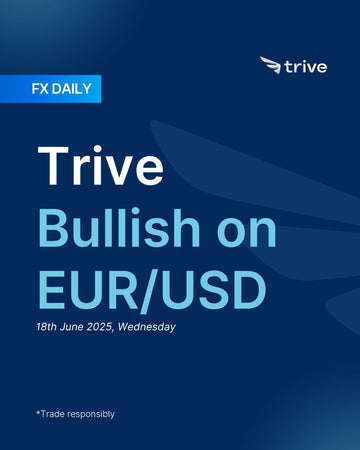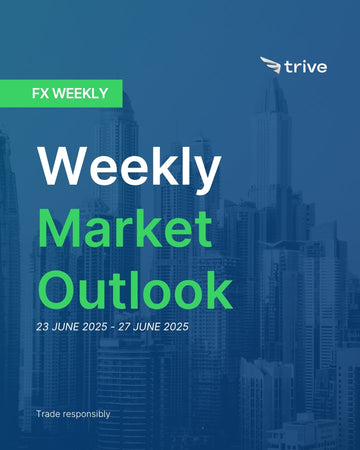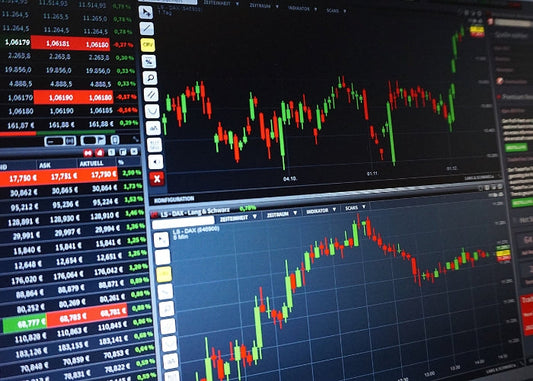FX Daily: Trive Bullish on GBP/USD

GBP/USD remains bullish despite weak UK data, supported by political stability and a relatively hawkish BoE. Recent gains were driven by USD softness, though geopolitical tensions capped upside. With a BoE cut priced for September and fading USD strength, GBP/USD bias stays positive.
USD: Fed up
Despite serious tensions in the Middle East, the oil market has remained surprisingly stable. Even after Israel’s latest attack on Iran, oil production hasn’t been disrupted, tankers are still loading, and supply continues to exceed demand. This oversupply has been building for months, with global inventories rising above normal levels and demand growth slowing. While prices briefly spiked, they quickly fell again as traders saw the rally as a chance to sell. The risk of a real supply shock still exists, but for now, the fundamentals point to a well-supplied market, and that may keep oil prices from surging.
The most likely outcome is that tensions stay contained, with no direct attack on the U.S. In that case, market reactions may remain limited. A second, more serious scenario would involve Iran retaliating against the U.S. but doing so carefully, for example, issuing warnings to avoid casualties. This would raise risks but still stop short of triggering a major escalation. The worst-case scenario involves Iran striking U.S. military positions or trying to close the Strait of Hormuz, a key route for global oil shipments. That could force the U.S. into a broader regional conflict alongside Israel. In such a case, the USD and oil prices could surge sharply, possibly reaching $130 a barrel.
The dollar’s limited bounce after Israel’s strikes on Iran shows that it’s no longer the automatic safe haven it once was. While the greenback did edge higher, it quickly gave back most of its gains, a contrast to how it used to behave during international crises. Broader concerns about U.S. trade policy, economic growth, and rising debt have weakened overall confidence. Some analysts suggest that unless tensions in the Middle East escalate significantly, any further dollar strength may be short-lived. Still, with the U.S. being the world’s largest oil producer and the dollar recently hitting multi-year lows, the bounce may have been driven more by positioning and short-covering than by genuine safe-haven demand, and that could give it short-term momentum.
Thus, the baseline bias is weak bullish for the dollar, unless the risk sentiment somehow reverses to risk on or the FOMC delivers a very dovish meeting - but due to the Iran-Israel conflict the FOMC could be overshadowed. As a reminder, Although recent events have given the U.S. dollar a modest boost, Friday’s attack demonstrated that investors currently favor the Swiss franc and the Japanese yen over the dollar. Over the long term, however, it remain bearish on the dollar. The present conflict may strengthen the dollar in the short term, but absent further escalation, such as U.S. involvement or attacks on American bases, will expect any rally to be temporary. In that scenario, look for opportunities to sell the USD when it becomes overbought. Do so cautiously, keeping a close watch on the news and assessing whether tensions are rising or easing and whether a peace agreement is likely.
GBP: BoE meeting today
The British pound was battered last week by a series of weak domestic indicators, finding its only respite in a rally driven by a precipitous fall in the U.S. dollar before a geopolitical shock brought its gains to a halt. Cable began the week on the defensive, plunging to a two-week low near 1.3450 after the UK’s jobs report revealed a slump of 109,000 in May HMRC payrolls, the largest drop since May 2020, alongside a further cooling in average earnings growth to 5.2 percent excluding bonuses and an uptick in the unemployment rate to 4.6 percent. These figures cemented market expectations for Bank of England rate cuts and set a dovish tone that was reinforced later in the week when April GDP data showed a 0.3 percent contraction month-on-month, deeper than the 0.1 percent decline forecast and accompanied by a 0.4 percent fall in the services sector, raising fresh concerns over the economy’s momentum after a strong first quarter.
Despite this weak growth narrative, the pound enjoyed a powerful updraft in the middle of the week, not on the back of UK strength but because of a dramatic plunge in the U.S. dollar following softer-than-expected U.S. inflation readings. As headline and core U.S. consumer and producer prices surprised to the downside, traders aggressively repriced Federal Reserve rate-cut prospects, sending Cable surging back above 1.3600 to a multi-year high. This recovery was ultimately checked on Friday, however, when reports of Israel’s attack on Iran triggered a flight to the safety of the U.S. dollar, forcing the pound to retreat from its best levels as global risk aversion dominated market flows.
On the policy front, the weak jobs and GDP data drove a sharp dovish repricing of Bank of England easing. By week’s end, money markets had shifted to fully price in a 25-basis-point rate cut by the September meeting, compared with November at the start of the week, and around 52 basis points of total easing by year-end. Although Governor Andrew Bailey’s successor, Huw van Steenis, and other BoE officials reiterated that disinflation remained on track, the hard data left little doubt about the timing of the first reduction. Meanwhile, the mid-week UK Spending Review passed without new surprises, as Chancellor Rachel Reeves confirmed adherence to the envelopes set out in the Spring Statement and emphasized that her fiscal rules were non-negotiable, making the event largely a non-catalyst for sterling. Throughout the week, the pound’s performance was shaped by these domestic headwinds offset by U.S. dollar weakness, and finally capped by the Friday geopolitical shock that reasserted the greenback’s safe-haven status.
The baseline bias remains bullish on the British pound, underpinned by the UK’s political stability, limited exposure to tariffs and global trade tensions, robust macroeconomic data, a relatively hawkish Bank of England and strong hedge-fund positioning. However, the ongoing conflict between Iran and Israel may drive a preference for traditional safe havens such as the Swiss franc and Japanese yen; even so, sterling should hold up better than currencies like the Australian and New Zealand dollars.
 GBP/USD 4H
GBP/USD 4H
Disclaimer
This material is provided for informational purposes only and does not constitute financial, investment, or other advice. The opinions expressed in this material are those of the author and do not necessarily reflect the views of Trive International. No opinion contained in this material constitutes a recommendation by Trive International or its author regarding any particular investment, transaction, or investment strategy. This material should not be relied upon in making any investment decision.
The information provided does not consider the individual investment objectives, financial situation, or needs of any specific investor. Investors should seek independent financial advice tailored to their individual circumstances before making any investment decisions. Trive International shall not be liable for any loss, damage, or injury arising directly or indirectly from the use of this information or from any action or decision taken as a result of using this material.
Trive International may or may not have a financial interest in the companies or securities mentioned. The value of investments may fluctuate, and investors may not get back the amount they originally invested. Past performance is not indicative of future results.
For more information about Trive International, please visit http://trive.com/int
Additional Information
Investing involves risk, including the potential loss of principal. Diversification and asset allocation strategies do not ensure a profit or guarantee against loss. The content in this material is subject to change without notice and may become outdated or inaccurate over time. Trive International does not undertake any obligation to update the information in this material.
By accessing this material, you acknowledge and agree to the terms of this disclaimer. If you do not agree with these terms, please refrain from using this information.
No comments
Home
Trive
TriveHub





0 comments